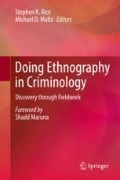Abstract
Given the current heat in Regent Park, the killing that occurred last night and the potential for continued retaliation (more shootings, including more drive-bys), I am seriously concerned about your safety. I realize that you think you know what you are doing (as you have expressed to me), and I do not doubt your street smarts or relationships with the guys. Unfortunately, this won’t help saving your life if you happen to be in the line of fire during the next drive-by shooting. We both know that enough people die of senseless violence each year, including in Regent Park, even though the victims are usually keenly familiar with the “street code” and “know what they are doing”. Further, in the wake of last night’s homicide, there will be an intense police presence and related investigation, and you will become known to them as someone who might have information (if you aren’t known to them already). You might also become a target yourself, given that you are known to be associated with that group of young men…
(Excerpt from an email sent from my Ph.D. Committee, August 19, 2015).
Access this chapter
Tax calculation will be finalised at checkout
Purchases are for personal use only
Notes
- 1.
I would like to express my sincerest gratitude to my former Ph.D. supervisor, Dr. Sandra Bucerius, and the members of my Ph.D. committee and the Department of Sociology at the University of Alberta for their unwavering support of my research project during this trying time.
- 2.
For an exception, see Moskos (2015).
- 3.
This account is informed by my own memories of what occurred, notes I had taken at the time, email exchanges, and informal conversations with my supervisor. My rendition of meetings or conversations that I was not privy to stems from formal and informal accounts of my supervisor, my Ph.D. committee members, and representatives of risk management services at the University of Alberta.
- 4.
At the Centre for Criminology and Sociolegal Studies at the University of Toronto.
- 5.
Given that my fieldsite (Toronto) was located across the country from my doctoral programme (Edmonton), I conducted my fieldwork during the summer months and would return to the University in autumn.
- 6.
As a young woman studying a hypermasculine group of men, I was immediately sexualized by my participants, although the nature and extent of this sexualization changed during the course of my research. My initial interactions were largely dominated by the men seeing me as a sexual conquest, which I worked to try and overcome through insisting that I was not interested in a sexual or romantic relationship and politely rejecting their advances, as well as through trying to dress and behave in a desexualized way (wearing baggy clothes, minimal makeup, not fixing my hair, sitting/standing/speaking in less stereotypically “feminine” ways, etc.). Although this was strategic on my end, dressing down also allowed me to be comfortable during long hours in the field—mostly outdoors—and I would often consciously pick my outfit to ensure that I was able to run for cover if I ever had to (running shoes, no jeans).
References
Anderson, E. (1998). Code of the street. New York: Norton.
Bourgois, P. (1995). In search of respect: Selling crack in El Barrio. Cambridge: Cambridge University Press.
Bucerius, S. M. (2013). Becoming a ‘trusted outsider’: Gender, ethnicity, and inequality in ethnographic research. Journal of Contemporary Ethnography, 42, 690–721.
Etherington, K. (2007). Ethical research in reflexive relationships. Qualitative Inquiry, 13(5), 599–616.
Fassin, D. (2006). The end of ethnography as collateral damage of ethical regulation. American Ethnologist, 33(4), 522–524.
Feeley, M. M. (2007). Legality, social research, and the challenge of institutional review boards. Law & Society Review, 41(4), 757–776.
Geertz, C. (1998). Deep hanging out. The New York Review of Books, 45(16), 69–72.
Goffman, A. (2014). On the run. Chicago: University of Chicago Press.
Haggerty, K. D. (2004). Ethics creep: Governing social science research in the name of ethics. Qualitative Sociology, 27(4), 391–414.
Katz, J. (2007). Toward a natural history of ethical censorship. Law & Society Review, 41(4), 797–810.
Maher, L. (2000). Sexed work: Gender, race and resistance in a Brooklyn drug market. Oxford: Oxford University Press.
Moskos, P. (2015). Observations on the making of a police officer. In M. Maltz & S. Rice (Eds.), Envisioning criminology: Researchers on research as a process of discovery (pp. 33–42). Berlin: Springer.
Purdy, S. (2005). Framing Regent Park: The National Film Board of Canada and the construction of ‘outcast spaces’ in the inner city, 1953 and 1994. Media, Culture & Society, 27(4), 523–549.
Scheper-Hughes, N. (1993). Death without weeping. Berkeley: University of California Press.
Urbanik, M.-M., & Haggerty, K. D. (2018). ‘#IT’S Dangerous’: The online world of drug dealers, rappers and the street code. British Journal of Criminology, azx083. https://doi.org/10.1093/bjc/azx083
Urbanik, M.-M., Stack, P. G., & Hui, L. (2016). Episodes of violence during ethnographic fieldwork in the ‘hood’: A case-study exploring a University’s response to increased risks. URMIA Journal, University Risk Management and Insurance Association, 20, 51–59.
Urbanik, M.-M., Thompson, S. K., & Bucerius, S. M. (2017). Before there was danger but there was rules. And safety in those rules. British Journal of Criminology, 57(2), 422–440.
Venkatesh, S. (2000). American project: The rise and fall of a modern ghetto. Cambridge: Harvard University Press.
Wacquant, L. (2007). Territorial stigmatization in the age of advanced marginality. Thesis Eleven, 91(1), 66–77.
Author information
Authors and Affiliations
Corresponding author
Editor information
Editors and Affiliations
Rights and permissions
Copyright information
© 2018 Springer International Publishing AG, part of Springer Nature
About this chapter
Cite this chapter
Urbanik, MM. (2018). Shots Fired: Navigating Gun Violence and a University’s Intervention While in the Field. In: Rice, S., Maltz, M. (eds) Doing Ethnography in Criminology. Springer, Cham. https://doi.org/10.1007/978-3-319-96316-7_26
Download citation
DOI: https://doi.org/10.1007/978-3-319-96316-7_26
Published:
Publisher Name: Springer, Cham
Print ISBN: 978-3-319-96315-0
Online ISBN: 978-3-319-96316-7
eBook Packages: Law and CriminologyLaw and Criminology (R0)

